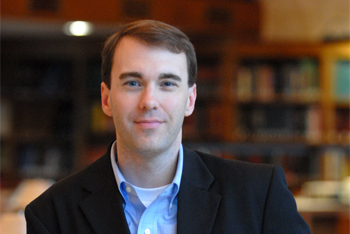Editor’s note: As the Christian landscape changes, leaders must ask and answer a new question: What’s the future of denominations? This interview is part of an occasional series that offers insight on this vital issue. To see the entire series, click here.
The Rt. Rev. Jeffrey N. Leath, a bishop in the African Methodist Episcopal (AME) Church, says the church’s long-term emphasis runs counter to the current culture’s focus on immediate results. However, denominations remain essential as reliable sources of truth. For this reason, he says, they will survive.
Leath earned his M.Div. at Yale Divinity School and his D.Min. at United Theological Seminary in Dayton, Ohio. From 1993 to 2008, he was senior pastor of the historic Mother Bethel Church in Philadelphia, Penn. In July 2008 Leath became the 128th elected and consecrated bishop of the AME Church. His assignment is in the Republic of South Africa. Leath is also the chairman of the Board of Examiners of the Philadelphia Annual Conference.
He spoke with Faith & Leadership about denominations as arbiters of truth and about their role in the global South. The video is an excerpt from the following edited transcript.
Q: What do you see as the future of Christian denominations?
The task of denominations is to continue what they have been. But it is going to be harder, because what denominations do runs counter to where the culture is at the moment. The culture is focused on things that bring about an immediate effect, and denominations are more concerned with a long-term approach, something that is lasting. When you look at things like fashion, you can go 100 years with one style of garment and then all of a sudden you get 10 different styles in a 20-year span. Denominations have a difficult challenge in the current environment.
They also have a challenge in terms of the issue of authority. Is the individual more authoritative in the current culture than it was, say, 50 or 100 years ago? We have always had people who think outside the box, but are there larger numbers of people looking for that person who is thinking outside the box? Individualism and freedom of expression are issues that denominations have dealt with in the past, but are going to have to deal with more creatively in the future.
We live in an age where authority is often suspect. Things that were everyday for denominations in the past will become interesting challenges.
Q: Some predict the Christian faith will be dominated by the Global South. What role will denominations play in this expansion?
In the global setting denominations will do exactly what they are best known for in the Western world. Denominations cast a greater shadow than congregations do. Talking about the fastest growing denomination is a branding instrument. Denominations are able to cast an image that is different than a church casting an image.
Q: What connections do individual churches in the Global South, in nations such as South Africa, have with their denominations?
As [South African] people are selecting churches, they want a sense that they are doing it not just on the basis of personality, but that there is also a sense of following a doctrine. Many charismatic leaders are gathering great churches, but people want to know what they believe. They want to know why. In South Africa people are asking questions that call for a deeper answer than a congregationally based ministry is able to provide.
Q: Can you give an example of one of those questions?
The work of the church in South Africa is focused on the issue of salvation in a traditional evangelical way. That’s not necessarily the current emphasis of the nondenominational approach.
Salvation is something that has a universal appeal. People are still asking the question, “What must I do to be saved?” Many of the nondenominational churches have drifted from that initial question. They have gotten very involved in programming, which addresses how I live my life as a saved person, but does not necessarily address what I must do to be saved.
Because the issue is so vibrant on the continent of Africa, there are many nondenominational churches addressing the question. People want to know, “What must I do to be saved?” And also, “Now that I am saved, how do I live as a saved individual?”
We don’t talk about salvation so much, because if we talk about salvation we have to talk about other things we don’t like talking about, like sin and judgment. We’re living in an age where people don’t want to be judgmental, or so they say.
Q: Is there anything that you would like to add?
One of the key functions of denominations is to help to clarify, present and then uphold a standard of truth. And denominations do this through a complex system of seminaries, learning institutions, practical professionals we call clergy, and then people who are experiencing the Holy Spirit and his guidance, the people in the pew who speak back to the professional clergy and to the seminary.
People around the world will always crave truth. And they’re going to want truth from the most reliable sources. One of the challenges of denominations, I think, has been denominations have allowed the so-called nondenominational churches to challenge who had the truth. And the test of truth comes over time. The validity of truth is not always apparent in the short term, but it’s in the long term, so that people are going to continue to go to the sources of truth, and if denominations want to be strong, the question is not survival. They will survive because they are necessary.
The question is whether or not denominations will be strong in the near future or the distant future, and a part of the strategy to making denominations strong is for them to be able to be recognized as the arbiters of trustworthy presentation of truth.
The issue of accountability is not a small issue. When you look at denominations in crisis, it’s when their inability to be accountable comes to the forefront, à la the Roman Catholic Church. When you look at denominations at their best, clergy and/or congregations are in the midst of crisis and they’re looking for an authoritative body to [step] in.
I heard a recent presentation from a Duke professor who made the statement that denominations were patterned on a government model, especially in the United States. As imperfect as our government model may be, the fact of the matter is, it beats anarchy. Denominations will survive because, like government, they beat anarchy.








